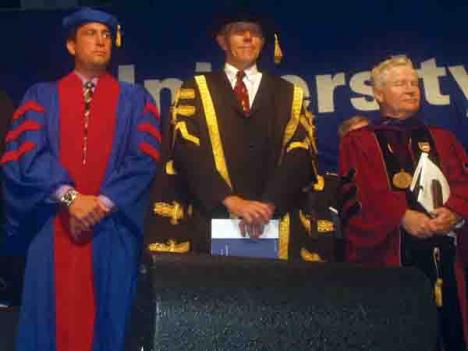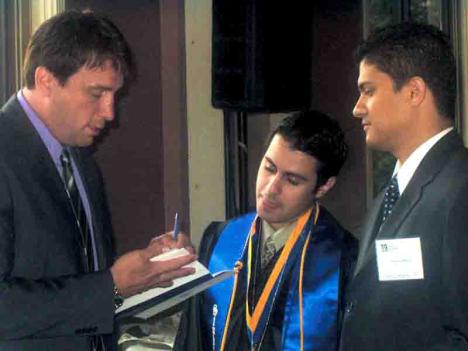Behind Closed Doors
February 12, 2003
The Student Senate held private talks with various student centers during a Budget and Finance Committee meeting, which went into a possibly illegal executive, or closed, session, shortly after starting. The talks were said to cover problems and concerns with Student Life, as well as the current budget crisis.
The Asian Center, the Queer Student Union, the disAbilities Center, Casa Latina, the Black Student Center, and The Watermark, UMass Boston’s literary magazine, all had representatives behind the closed doors of the Senate Office. Those contacted afterwards declined to comment on the meeting, one citing a promise to the senate not to. The discussions in an executive session aren’t supposed to be talked of outside of executive session.
The February 5 B & F meeting was not posted, nor did the reasons for going into executive session conform to guidelines set by the Massachusetts Open Meeting Laws. The Open Meeting Laws state that notice of the meeting should be publicly posted at least forty-eight hours before the meeting. The state also outlines explicit rules for going into executive session, among them to discuss the reputation of an person, to consider the dismissal of a person, to discuss litigious matters, and to investigate the filing of or charges of criminal misconduct. The Budget and Finance Committee listed only discussions on the budget crisis and problems with Student Life as their reasons for the executive session.
“I think it’s a shame that the senate has to have any meeting behind closed doors that’s discussing business relevant to any student organization. Clearly, closed meetings should be held when they’re discussing disciplinary action against a member or some internal working, but to have a large number of people there to give testimony and to kick out only the member of the press is ill-advised,” said Donna Neal Associate Director of Student Life.
“We went into executive session because we wanted to hear the administrative financial concerns of the student center coordinators,” said Vice President Tuan Pham.
“We just wanted people to be able to voice their opinions in to open,” said Senator Andrew Barnes. Senator and B & F Committee Chair Omar Bukhari stated that the meeting was “official,” and the only mistake they made was not posting it, for which they were “very sorry.”
The Student Activities Trust Fund (SATF) has an expected deficit of $44,000, the result of the university switching to a more proportional system for collecting fees.
According to the senate’s constitution, the Budget and Finance Committee has “complete responsibility for the planning and review of the budget of the SATF and for presenting its plans and recommendations”, it is able, among other things, to recommend and pay for an audit of the SATF, which can be conducted by the university, state auditors, or private auditors.
The Student Senate has gone into executive session a number of times since Fall 2002, including three times since the beginning of the spring semester, once as the whole Senate and twice in committees. Some consider the frequency of executive sessions unusual. All three executive meetings concerned the Student Activities Trust Fund budget.
Anne Hess, Staff Director for the Boston City Council, said that the council hasn’t gone into executive session since last year, and even when it did, it went, in for matters of litigation and personnel. A spokesperson for the State House stated they don’t even use the phrase “executive session.”






















































